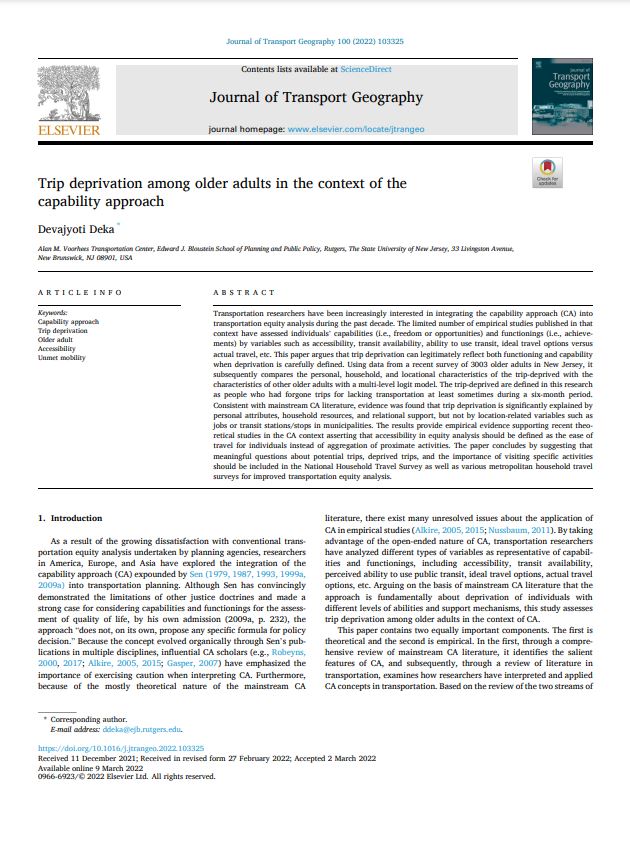Abstract
Transportation researchers have been increasingly interested in integrating the capability approach (CA) into transportation equity analysis during the past decade. The limited number of empirical studies published in that context have assessed individuals’ capabilities (i.e., freedom or opportunities) and functionings (i.e., achievements) by variables such as accessibility, transit availability, ability to use transit, ideal travel options versus actual travel, etc. This paper argues that trip deprivation can legitimately reflect both functioning and capability when deprivation is carefully defined. Using data from a recent survey of 3003 older adults in New Jersey, it subsequently compares the personal, household, and locational characteristics of the trip-deprived with the characteristics of other older adults with a multi-level logit model. The trip-deprived are defined in this research as people who had forgone trips for lacking transportation at least sometimes during a six-month period. Consistent with mainstream CA literature, evidence was found that trip deprivation is significantly explained by personal attributes, household resources, and relational support, but not by location-related variables such as jobs or transit stations/stops in municipalities. The results provide empirical evidence supporting recent theoretical studies in the CA context asserting that accessibility in equity analysis should be defined as the ease of travel for individuals instead of aggregation of proximate activities. The paper concludes by suggesting that meaningful questions about potential trips, deprived trips, and the importance of visiting specific activities should be included in the National Household Travel Survey as well as various metropolitan household travel surveys for improved transportation equity analysis.
